Personalized Health: Featured research
Large-Scale Applied Research Projects
-
Silent Genomes: Reducing health care disparities and improving diagnostic success for children with genetic diseases from Indigenous populations
The Silent Genomes Project
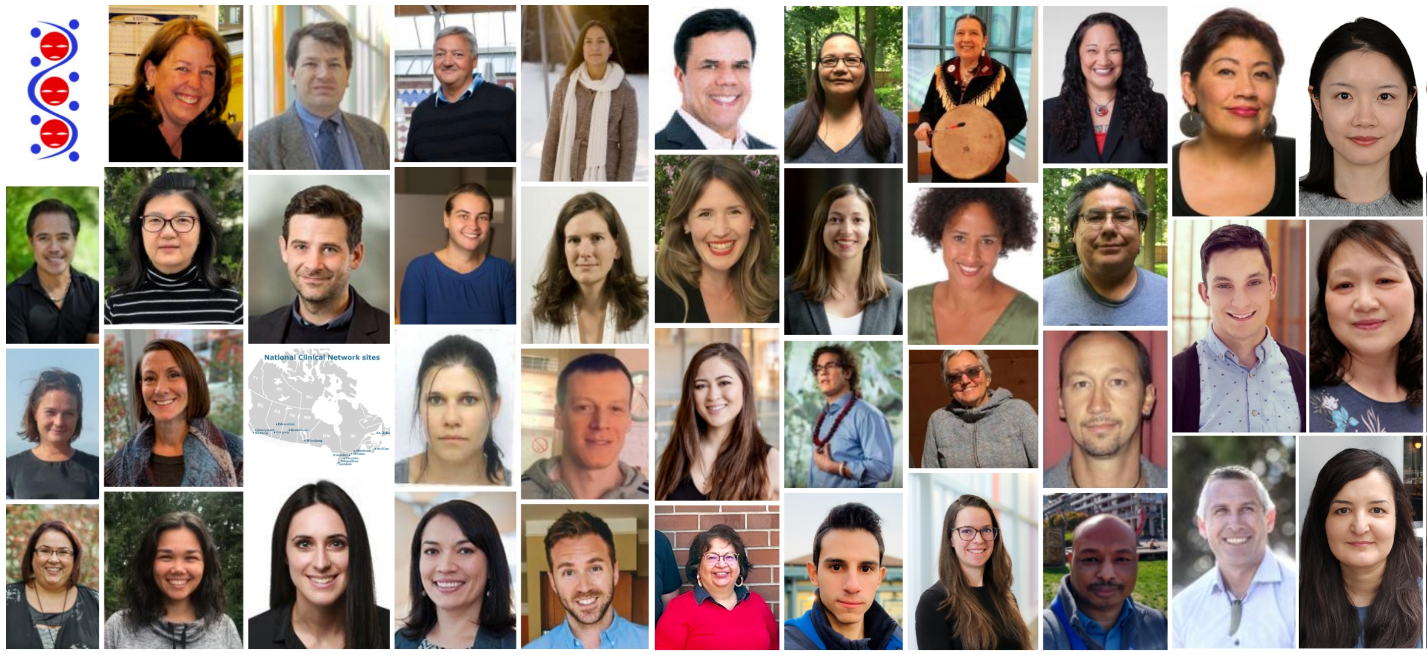
Leads
- Dr. Laura Arbour, University of British Columbia, University of Victoria
- Dr. Nadine R. Caron, UBC Centre for Excellence in Indigenous Health
- Dr. Wyeth W. Wasserman, University of British Columbia
Indigenous Peoples of Canada face unique health challenges, inequities, and barriers to health care and typically have poorer health outcomes than non-Indigenous groups. While leading-edge genomic technologies are becoming routinely available to other Canadians, Indigenous people have many challenges in accessing these technologies, increasing the health disparity gap. Silent Genomes addresses this inequity, by bringing genomic diagnosis to children and families while ensuring Indigenous-led governance over genomic data.
Summary
The Silent Genomes Project aims to improve equity in genomic diagnosis for Indigenous patients and families. This is being done through the lens of our Indigenous team members, our International Indigenous Genomic Advisory committee, and the Silent Genomes Indigenous Rare Disease Diagnosis Steering Committee (S-GIRDD SC). The diagnostic odyssey for those with a rare disease is a difficult and lengthy process, and for Indigenous patients is also fraught with inequities and barriers to accessing healthcare. Through the Precision Diagnosis arm (Activity 2) of the Project we are working to address these inequities starting with access to genomic diagnosis. Enrollment occurs at various sites across the country via our National Clinical Network, who have united with the common goal of providing genomics healthcare in a culturally safe way. Using cutting-edge whole genome sequencing and data analysis techniques, we provide the best chance of diagnoses albeit with the challenge of lack of Indigenous genomic reference data. We aim to further provide accurate diagnoses within the project and beyond with the development of an Indigenous Background Variant Library (IBVL, Activity 3). The IBVL will be a database of the frequency of DNA variants, present in Canadian Indigenous populations (without severe disease) to assist in diagnosis. The computational team has optimized processing capacity in the context of a high level of security at the BC Children’s Hospital Research Institute where the IBVL will be processed. In the interest of Indigenous data sovereignty concerns, and following the advice of our all Indigenous steering committee (S-GIRDD SC), a restricted access interface was developed for future use of the IBVL. On-going Indigenous governance (Activity 1), even after project completion, ensures that benefits are consistent with Indigenous expectations for equity and data sovereignty.
Through partnership with the First Nations Health Authority and with Indigenous patient partners and community oversight, the Health Economics team (Activity 4) is: exploring the diversity of values and perspectives held by Indigenous communities and individuals around genomic testing; investigating health equity of the diagnostic experience for Indigenous children with suspected genetic conditions; and integrating values and equity evidence into cost-effectiveness analyses of genomic sequencing to support practice and policy.
About the team
A diverse group of individuals are leading the activities associated with the Silent Genomes project. Specifically, each of the 4 main activities has an associated team of experts (Activity 1; Activity 2; Activity 3; Activity 4).
Related reading
- Indigenous Governance model: The Silent Genomes Indigenous Rare Disease Diagnosis Steering Committee (S-GIRDD SC)
- The Indigenous Background Variant Library (IBVL)
- Resources for Best Practices in Genetics/Genomics Research and Clinical Care for Indigenous Peoples
- Educational Materials to increase health care provider, Indigenous patient, community, and student capacity to guide and understand genomics research and medica care for Indigenous Peoples
Contact information
Website: Silent Genomes Project
Twitter: @SilentGenomes
-
Care4Rare Canada: Harnessing multi-omics to deliver innovative diagnostic care for rare genetic diseases in Canada
C4R-SOLVE
Leads
- Dr. Kym Boycott, Children’s Hospital of Eastern Ontario
- Dr. Michael Brudno, Hospital for Sick Children
- Dr. Clara van Karnebeek, University of British Columbia
- Dr. Francois Bernier, University of Calgary
Our philosophy for success has always been to collaborate with your friends, share generously, and partner with the rare disease patient community.
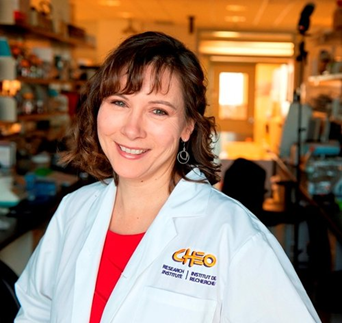
Summary
Care4Rare-SOLVE (C4R-SOLVE) is a rare disease research program that builds on the work of the Care4Rare Canada Consortium, a network of clinicians and researchers that was established in 2010. In this study we aim to enhance diagnostic care for patients with undiagnosed rare genetic diseases in Canada.
To do this, C4R-SOLVE has two goals. The first goal is to increase access to a new genetic test called genome-wide sequencing (GWS) within Canadian provincial healthcare systems. We partnered with the Ministries of Health in Ontario and Alberta (representing 50% of the Canadian population) and are examining whether this test delivers diagnoses, changes medical management, and shows value for money in over 700 patients.
The second goal of C4R-SOLVE is to identify the causes of the most difficult to diagnose diseases. We created a database called Genomics4RD which helps harmonize data collection and storage across Canada, and fosters data sharing across the world. This scale of data sharing is important for identifying and connecting multiple families with the same ultra rare and brand new disease.
In addition to our data sharing efforts, we also use cutting edge genetic technologies that are not yet available in the clinic, and customized laboratory studies on participant cell lines, to discover new causes of rare diseases. So far, these new technologies have identified new diagnoses that would not have been found by standard of care in 1 out of every 10 (10%) families studied and we have discovered 80 new disease genes that have never been described before.
The successful completion of our research program will facilitate an accurate and timely diagnosis as the cornerstone of precision health. Early diagnoses will improve patient and health system outcomes for families living with rare diseases in Canada.
About the team
Care4Rare includes 21 academic sites across Canada, and our team is made up of over 200 physicians and 100 scientists. We are internationally recognized as a pioneer in the field of genomics and personalized investigations.
Related reading
- Genomics4RD: An integrated platform to share Canadian deep-phenotype and multiomic data for international rare disease gene discovery
- Outcome of over 1500 matches through the Matchmaker Exchange for rare disease gene discovery: The 2-year experience of Care4Rare Canada
Contact Information
Website: Care4Rare
Twitter: @care4rarecanada
-
Genomic and Outcomes Databank for Pharmacogenomic and Implementation Studies (GO-PGx)
Leads
- Dr. Bruce Carleton, University of British Columbia
- Dr. Colin Ross, University of British Columbia
Summary
Adverse drug reactions (ADRs) are a major problem in modern medicine, leading to withdrawal of treatment, non-compliance with medication, permanent disability and death. This is particularly true for cancer treatment, with its potent medications. The vision of GO-PGx is to save lives and improve the quality of life of children with cancer, by using genomics-based precision health strategies to reduce the most common and serious ADRs in these children.
It is increasingly evident that genetic differences in patients can affect the likelihood of their developing an ADR. GO-PGx is working to prevent these ADRs and has developed lab tests to predict the likelihood of a childhood cancer patient developing ADRs associated with cisplatin, anthracyclines and thiopurines. These tests are being used in clinical practice at 10 pediatric cancer centres across Canada, while also studying barriers and facilitators to the uptake of this technology in the health-care system, as well as the economic implications of introducing this kind of testing into clinical practice.
GO-PGx is also analyzing more than 6,125 DNA samples and corresponding medication use and ADR outcome data to discover biomarkers that will reveal genetic susceptibility to ADRs associated five of the most severe ADRs in childhood cancer. GO-PGx is also developing education material and guidelines for patients and clinicians to facilitate the use of these tests more widely in clinical practice. They are also developing a comprehensive database linking clinical and genetic data as an accessible resource for researchers throughout the world.
About the team
GO-PGx is a unique interdisciplinary team of healthcare providers, scientists and health policy stakeholder who have worked together for more than a decade to develop a world-renowned team focused on making the use of drugs in cancer treatment safer.
Related reading
-
GenCOUNSEL: Optimization of genetic counselling for clinical implementation of genome-wide sequencing
GenCOUNSEL
Leads
- Dr. Alison M. Elliott, University of British Columbia
- Dr. Bartha Knoppers, McGill University
- Dr. Jehannine Austin, University of British Columbia
- Dr. Larry Lynd, University of British Columbia
We are motivated to make a positive difference for all of the families in Canada who are impacted by genetic conditions - families are at the centre of everything we do.

Summary
For families with unexplained health conditions, genome-wide sequencing (GWS) can provide much needed answers, but may also raise questions. We are researching the best ways to provide genetic counselling for GWS in Canada. The impact of our research is improved access and quality of clinical genetic services.
Profession: We are creating a workforce model to understand how many people in Canada need genetic counselling and testing and the workforce available to provide those services.
Programs: We are researching patient experiences with GWS in different populations, including adolescents, children, and babies in the NICU. We are conducting research about how genetic counsellors can assist in “choosing the right test for the right patient at the right time”, streamlining test ordering, and reducing healthcare costs.
Practice: We assessed the integration of a genetic counsellor into a primary care clinic, aiming to improving access and multidisciplinary care. We are also conducting a trial implementing a decision aid (DECIDE) to evaluate the effectiveness and cost impacts for patients who are trying to choose if GWS is right for them. Also, we developed resources to help patients navigate the GWS process and next steps after they have received their results.
Policy: We are exploring the pros and cons of different models that could be used for the legal regulation and recognition of genetic counsellors in Canada.
To date, GenCOUNSEL has published 12 peer-reviewed publications, a legal paper, and an article in a patient-oriented magazine and have presented over 70 times to a variety of audiences.
About the team
The GenCOUNSEL team is made up of experts in genetic counselling, genomics, clinical genetics, ethics and policy, law, health services implementation and health economics.
Related reading
- Link to publications (PubMed)
Contact Information
Website: GenCOUNSEL
Twitter: @GenCOUNSEL_CA
Instagram: gencounsel_ca
Facebook: GenCounsel
-
Tackling Childhood Brain Cancer at the root to improve survival and quality of life
Leads
- Dr. Nada Jabado, Research Institute of the McGill University Health Centre
- Dr. Michael D. Taylor, The Hospital for Sick Children
- Dr. Jacek Majewski, McGill University
Summary
Pediatric brain cancer remains a lethal and disabling disease. It is the leading cause of cancer-related deaths among children; for some types, barely 10 percent of children survive three years after diagnosis. Many of those who do survive suffer severe lifelong disabilities due to the therapies they receive.
The aim of this project is to improve the survival rate and quality of life for children with the most harmful brain cancers. We are also performing innovative investigations of the tumours to identify new vulnerabilities that can be targeted for therapy, and using relevant disease models to ensure that novel treatments are rigorously validated and fast-tracked to clinical trial. We are working with health-care providers, regulators and patient advocates to ensure the rapid translation of validated treatments to the bedside.
We have impacted the field by completing a single-cell atlas of mouse embryonic brain, which enabled us to identify the cell of origin of several types of pediatric brain tumours. We then used this atlas to define the disease mechanisms and lineage of origin of specific subgroups of gliomas, ependymomas and medulloblastomas—allowing us to identify new targets for precision therapy. Our team members also helped rewrite the WHO Classification of Tumours of the Central Nervous System; several of the crucial changes from the previous version were inspired by our project’s findings.
The project has generated a massive amount of information; our next steps are to further analyze the data and translate the findings to advance the clinical treatment of brain cancers.
About the team
The team consists of researchers, clinicians and patient advocates from across Canada and the United States. We meet regularly both virtually and in-person to discuss and share the results so as to maximize the impact of the project.
Related reading
-
Precision Medicine CanPREVENT AMR: Applying Precision Medicine Technologies in Canada to Prevent Antibody Mediated Rejection and Premature Kidney Transplant Loss
CanPREVENT: Reducing the risk of kidney transplant rejection
Leads
- Dr. Paul Keown, University of British Columbia
- Dr. Ruth Sapir-Pichhadze, McGill University
- Dr. Stirling Bryan, University of British Columbia
- Dr. Timothy Caulfield, University of Alberta
One kidney for life. Researchers involved in the project are using precision medicine technologies to better match kidney donors with patients, to monitor the immune system and to develop a personalized drug treatment after transplantation to prevent premature graft loss.
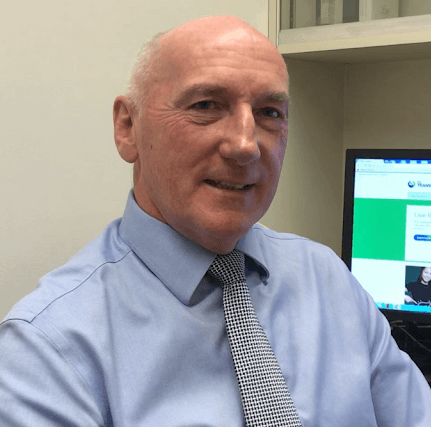
Summary
Transplantation is the optimal treatment for patients with kidney failure, but rejection still causes premature graft loss in as many as 30 per cent of recipients. The goals of this research program are to cut the rejection rate in half by using genomic technologies to improve the matching of donors and recipients, to monitor the immune response for rejection, and to develop personalized drug treatment regimens for each recipient. The project also examines legal and ethical ramifications of introducing these strategies to health care system, and identifies societal and economic barriers to adopting these innovations, as well as effective strategies to address them.
Main outcomes to date:
- We have defined, evaluated and modelled a new, better method of matching patients and donors (called epitope-matching) that carries a substantial promise of lowering the possibility of antibody-mediated rejection event in patients. We are currently designing a first-of-the-kind national program that would be based on epitope-matching.
- We have explored the potential of several novel methods of genotyping (rapid typing) to predict relevant donor epitopes. The rapid-typing method we designed allows us to obtain precise donor genotyping in less than 6 hr, which is a real breakthrough in the field.
- Our team has successfully examined Canadian’s views on how to best allocate kidneys in a way that is fair to all the recipients on the waitlist using deliberative dialogue.
- We led media workshop with CDTRP on Organ Donation and Transplantation
About the team
The team led by Drs. Paul Keown and Stirling Bryan of the University of British Columbia, Ruth Sapir-Pichhadze of McGill University and Timothy Caulfield of the University of Alberta includes over 70 scientists and clinicians from 22 universities in Canada, the US, the UK and the EU.
Related reading
Select publications
- High-throughput sequencing defines donor and recipient HLA B-cell epitope frequencies for prospective matching in transplantation
- Genome Canada precision medicine strategy for structured national implementation of epitope matching in renal transplantation
- Comprehensive Immune Profiling of a Kidney Transplant Recipient With Peri-Operative SARS-CoV-2 Infection: A Case Report
Websites and media
- Genome Canada Transplant Consortium website
- $9.7M awarded to kidney transplantation research (C2E2)
- Organ donation transplant stories: #50YearsofTransplant: Dr. Paul Keown (BC Transplant)
Stay connected
Twitter: @GenomeCanadaTx
YouTube Channel: GCTC
LinkedIn: GenomeCanadaTx
Instagram: @GenomeCanadaTx
-
Reducing the global burden of infectious diseases through precision population health
Leads
- Dr. Ian A. Lewis, University of Calgary
- Dr. Hallgrimur Benediktsson, University of Calgary, Alberta Precision Laboratories
- Dr. Fiona Clement, University of Calgary
- Dr. Ashlee Earl, Broad Institute of MIT and Harvard
- Dr. Bruce Walker, Broad Institute of MIT and Harvard
- Dr. Yonatan Grad, Harvard T.H. Chan School of Public Health
Our vision is to extend the service life of our existing antibiotics and prolong human lifespans by leveraging the immense untapped data that are housed inside of microbes
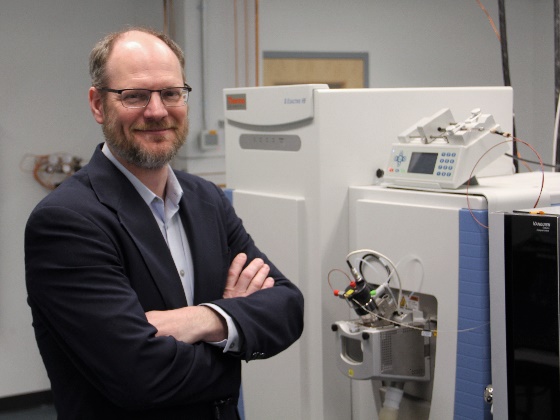
Summary
The global rise in the prevalence of antibiotic resistant bacteria is a problem so serious that it threatens all of modern medicine. We have already reached the point where half of the common bacteria that cause infections are resistant to our front-line drugs. Once these resistant organisms take hold in our healthcare setting, many of the benefits of modern medicine—including hip replacement surgery, chemotherapy, and organ transplant—will become too risky due to the chances of acquiring a deadly infection. Moreover, different strains of bacteria can cause dramatically different risks to our health. However, we do not consider these risks when treating infections.
To solve this problem, we are analyzing the biochemical traits of 50,000 microbes isolated from patients with blood stream infections. Funded by a Genome Canada large-scale applied research grant, we are determining the genomic, proteomic, and metabolomic characteristics of these microbes and linking this information to patient outcome data available through the Alberta healthcare system. Our goal is to 1) identify every significant biochemical trait that is found in the most dangerous bacteria, 2) create an automated analytical system and database for predicting the potential risks posed by each infection, and 3) implement a new Precisions Infection Management (PIM) strategy that will allow clinicians to match each patient to the exact level of antibiotic therapy necessary to cure infections. This will be enabled by a new online portal called ResistanceDB, which allows clinicians to adjust their care according to the risks posed by each individual infection.
About the team
In close partnership with Alberta Precision Laboratories, one of the largest consolidated microbiology testing facilities in Canada, Dr. Lewis is leading an international team of infectious disease experts, clinicians, microbiologists, database experts, and analytical chemists to develop this new, groundbreaking PIM approach to treating infections.
Related reading
- ResistanceDB webportal
- Lewis research group website
- Metabolic Preference Assay for Rapid Diagnosis of Bloodstream Infections
- Metabolomic characterization of microorganisms (patent)
- Device, Method, and System for Identifying Organisms and Determining Their Sensitivity to Toxic Substances Using the Changes in the Concentrations of Metabolites Present in Growth Medium (patent)
-
PEGASUS-2 - PErsonalized Genomics for prenatal Abnormalities Screening USing maternal blood: Towards First Tier Screening and Beyond
Moving towards implementing the next generation of prenatal screening
Leads
- François Rousseau, Université Laval
- Sylvie Langlois, University of British Columbia
This project has the potential to bring the power of genomics-based non-invasive prenatal testing to all pregnant women in Canada.
Summary
During pregnancy, DNA of placental origin circulating in maternal blood can be analyzed using genomics-based non-invasive prenatal screening (NIPS), a reliable screening tool for Down syndrome (trisomy 21), trisomy 18 and trisomy 13 which Canadian prenatal care guidelines recommend.
PEGASUS(1) showed that NIPS for second-tier screening of women screened positive on less costly and less accurate traditional Down syndrome prenatal screening tests is feasible in a public-lab context, cost-neutral for the health system, reduces pregnancy losses, and is ethically acceptable in a certain context. The ongoing PEGASUS2 project will determine the feasibility of using NIPS as the entry-level test for screening of trisomies 21, 18 and 13. This could benefit women with earlier and better detection of an affected pregnancy and a lower chance of providing a false positive result. Because NIPS can potentially detect other fetal chromosome anomalies, more conditions could be screened but published data is lacking to validate this use of expanded NIPS. PEGASUS2 will improve this evidence-base. To date we achieved several objectives including reaching the cost-effective threshold of <$200CAD for first-tier NIPS and studying the values of pregnant women, their partners, health care professionals and representative of patient organizations.
While taking into account the values informing couples’ decisions about prenatal screening, PEGASUS2 will enable publicly funded access to a promising genomics technology for all pregnant women in Canada. Further, it will ensure that couples have access to web-based tools to help their decision making, and that health care professionals are trained in shared decision making for prenatal screening.
About the team
The research Team comprises researchers covering the different fields of research needed for the Activities: clinical geneticists, obstetricians, family physicians and laboratory physicians and professionals, epidemiologists, GE3LS experts and health economists. Other expertise includes evidence-based medicine, molecular diagnostics, reference methods, next-generation sequencing and bioinformatics, health services and implementation research.
Related reading
- PEGASUS website
- Prospective head-to-head comparison of accuracy of two sequencing platforms for screening for fetal aneuploidy by cell-free DNA: the PEGASUS study [ PDF (1.6 MB) - external link ]
- Introducing cell-free DNA noninvasive testing in a Down syndrome public health screening program: a budget impact analysis [ PDF (1 MB) - external link ]
- The value of non-invasive prenatal testing: preferences of Canadian pregnant women, their partners, and health professionals regarding NIPT use and access [ PDF (1.4 MB) - external link ]
- Theory-based approach to developing an implementation plan to support the adoption of a patient decision aid for Down syndrome prenatal screening
-
Personalized Risk Assessment for Prevention and Early Detection of Breast Cancer: Integration and Implementation
PERSPECTIVE I&I
Leads
- Jacques Simard, Université Laval, CHU de Québec-Université Laval Research Centre
- Anna Maria Chiarelli, Ontario Health, University of Toronto
This project aims at providing evidence in order to facilitate the implementation of a risk-based personalized breast screening approach, thereby improving the benefits and reducing the harms of existing breast cancer screening programs in Canada.
Summary
PERSPECTIVE I&I is comprised of four connected activities. The goal of the first activity is to identify and validate new breast cancer susceptibility genes through large-scale genomic international studies. The second activity aims at improving and validating a comprehensive breast cancer risk prediction tool and adapting it to the Canadian context. The third activity aims at developing a framework to support implementation of a personalized risk-based approach to breast cancer screening. To this end our study uses risk stratification tools, previously developed by our team, to generate real-world evidence on acceptability and uptake of risk-based screening, and which will also address socio-ethical and legal issues as well as the organizational adoption readiness. To achieve this, we have recruited close to 4500 women from the provinces of Quebec and Ontario for whom we have collected, throughout the course of our study, extensive information on family history of cancer, genetic and epidemiologic risk factors, and information on their knowledge, attitudes and behavior about screening. Finally, the fourth activity involves economic analyses to determine the optimal and most cost-effective strategies for implementing risk-based breast cancer screening in the Canadian health care system. It is expected that earlier detection will allow more cancers to be detected while they are still small and curable thus leading to less invasive treatment with fewer complications and improved quality of life and survival. Risk-based screening and prevention is expected to benefit all women, empowering them to work with their healthcare provider to make informed decisions about screening and prevention.
About the team
This large-scale international and interdisciplinary project brings together 26 scientists and clinicians from five different countries, namely Canada, United States, United-Kingdom, Germany and the Netherlands, having extensive expertise in cancer genetics, molecular biology, epidemiology, biostatistics, bioinformatics, ethics, socio-economics and modelling.
Related reading
- Perspective study website (only in French)
- Personalized breast cancer risk assessment study
- Personalized Risk Assessment for Prevention and Early Detection of Breast Cancer: Integration and Implementation (PERSPECTIVE I&I)
- Should Age-Dependent Absolute Risk Thresholds Be Used for Risk Stratification in Risk-Stratified Breast Cancer Screening?
-
Deciphering the genome biology of relapsed lymphoid cancers to improve patient management
Genomic testing in lymphoma
Leads
- Christian Steidl, BC Cancer
- Marco Marra, BC Cancer
- David Scott, BC Cancer
We strive to make the benefits of genomics accessible to all of our lymphoma patients and in particular to those who are at the highest risk of dying of their disease
Summary
The project objective is to develop clinical assays for lymphoid cancers based on genomic data. By identifying biological processes of disease progression, we develop biomarker assays that will guide individual treatment decisions to improve survival and life quality of lymphoma patients.
Two biomarker assays have been developed. A gene expression assay (LExA), identifying high-risk Hodgkin Lymphoma (HL) and enabling molecular subtyping of aggressive B-cell lymphoma, will shortly be available in clinical laboratories. A sequencing assay (LyseqST), detecting lymphoma-specific mutations and providing mutation-based classification, will be introduced into clinical care within the next year.
Multi-time point genome-wide sequencing and expression analysis in diffuse large B-cell lymphoma (DLBCL), follicular lymphoma and chronic lymphocytic leukemia (CLL) (the most common lymphoid cancers) provides the framework for additional discovery and development of future biomarker assays. Integrative analysis, along the time axis of treatment and disease progression, revealed the importance of malignant cell–tumour microenvironment interactions and distinct patterns of tumour evolution linked to clinical trajectories. Our studies have significantly contributed to new classification systems for lymphoid neoplasms, directly translating into patient care and solidifying the promise of precision oncology. Patients, clinicians, decision makers and members of the public were recruited for discrete choice experiment surveys available in French and English, leading to a genomic analysis decision aid currently being refined and tested.
A cost effectiveness analysis of biomarker-guided treatment in DLBCL is published and similar analyses for HL and CLL are nearing completion. Tools to estimate cost effectiveness of specific genome-informed therapies are under development.
About the team
We are world-leaders in the genomics of lymphoid cancers both at diagnosis and relapse. Our pan-Canadian team has led the field in the discovery of candidate biomarkers in these diseases, utilizing state-of-the-art technology platforms and has extensive experience in translating candidate biomarkers to implementation, demonstrating clinical validity and utility.
Related reading
- Molecular and genetic characterization of MHC deficiency identifies EZH2 as therapeutic target for enhancing immune recognition
- Genetic and evolutionary patterns of treatment resistance in relapsed B-cell lymphoma
- Gene expression-based model predicts outcome in children with intermediate-risk classical Hodgkin lymphoma
- Cost-Effectiveness of Molecularly Guided Treatment in Diffuse Large B-Cell Lymphoma (DLBCL) in Patients under 60
-
UCAN CAN-DU and beyond: Towards a global genomic partnership for childhood arthritis
Leads
- Dr. Rae Yeung, Hospital for Sick Children
- Dr. Susanne Benseler, Alberta Children’s Hospital, University of Calgary
- Dr. Deborah Marshall, University of Calgary
To enable advances in genomics research partnerships globally, a foundational requirement is the ability to share data of all types across borders in a way that is secure, and meets legal, ethical and regulatory requirements across countries. This project will produce a roadmap for such a federated data system and framework
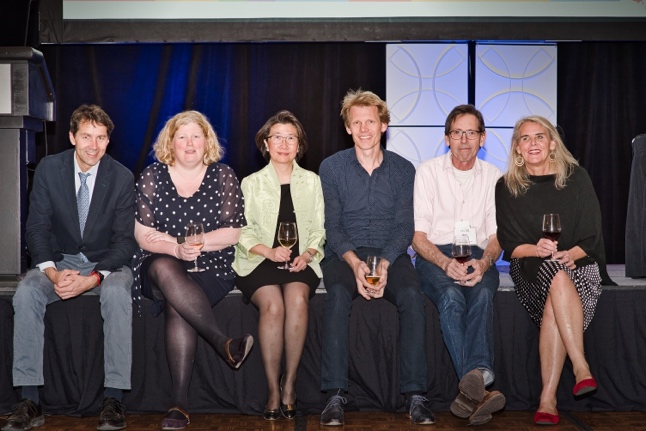
Summary
Meaningful advancement in genomics research in rare diseases requires international collaboration, cross-validation and data sharing. The objective of this project is to create a transformative roadmap for global secure sharing of genomic, phenotypic and health economics data that is guided by the diverse legal, ethical and regulatory requirements across borders.
This project build upon the Understanding Childhood Arthritis Network Canadian Dutch (UCAN CAN-DU) collaboration which is an interdisciplinary team that capitalizes on our globally standardized data and sample collection, phenotype reporting, and archiving systems catalyzed by the Understanding Childhood Arthritis Network (UCAN) initiative, an international federation of research networks led by Yeung (UCAN PI).
UCAN focusing on genomic science linked to molecular mechanism, machine learning, and economic modeling – all of which are supported by an integrated eHealth and knowledge translation platform. Building on the unique lessons learned from the UCAN CAN-DU collaboration between CANadian (Benseler-lead) and DUtch researchers (Wulfraat-lead), this project will systematically address barriers and share solutions for a seamless global genomics research partnership.
Key next steps are to establish an expert stakeholder team enriched by ethics and legal experts to define the key organizational principles of such a transformative roadmap for data sharing to advance global genomics research in rare diseases (Marshall-lead).
Marshall authored a 2020 World Economic Forum White Paper establishing a health economic value framework for global data access in solving rare diseases. Wulfraat and Benseler helped lead the team which developed European wide consensus recommendations for collaborative pediatric research including frameworks for ethics and biobanking, in the “SHARE” initiative (a Single Hub and Access point for paediatric rheumatology in Europe).
About the team
Our team encompasses a group of scientists with long-standing and internationally recognized leadership in the areas of inflammatory disease pathogenesis, health outcomes research, computational biology, biomarker discovery, health economics, ethics and knowledge translation, with established eHealth researchers who are new to arthritis research, bringing new and complementary expertise, all working together with patients and families.
Related reading
- UCAN CAN-DU website
- Recommendations for collaborative paediatric research including biobanking in Europe: a Single Hub and Access point for paediatric Rheumatology in Europe (SHARE) initiative
- Global Data Access for Solving Rare Disease: A Health Economics Value Framework (white paper) [ PDF (1.4 MB) - external link ]
- Twitter: @ucancandu
- Date modified: